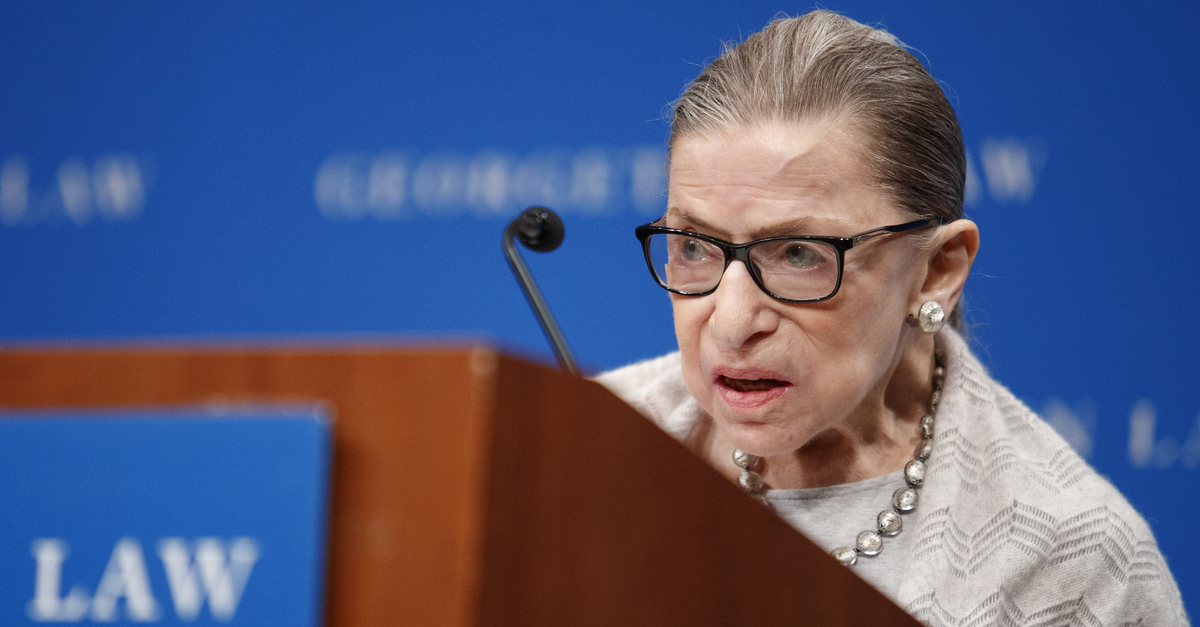
In a late-breaking decision, the U.S. Supreme Court on Monday night declined to extend the deadline for absentee voting in the Wisconsin primary election and general judicial election scheduled for Tuesday.
Led by Justice Ruth Bader Ginsburg, the court’s liberal wing issued a fiery and furious dissent which knocks the court’s conservative wing for denying many thousands of Wisconsinites the ability to safely vote-by-mail amid the novel Coronavirus (COVID-19) pandemic.
The deadline to postmark a ballot by April 7 was previously extended by a district court in Wisconsin late last week. That extension afforded voters nearly an additional week to postmark their ballots–until April 13–after several voting rights and community organizations sued to relax the absentee ballot window.
“The District Court, acting in view of the dramatically evolving COVID–19 pandemic, entered a preliminary injunction to safeguard the availability of absentee voting in Wisconsin’s spring election,” Ginsburg’s sharply-worded dissent began. “This Court now intervenes at the eleventh hour to prevent voters who have timely requested absentee ballots from casting their votes.”
Monday’s decision by the conservative majority shuts down that additional time/window. Meaning: Wisconsin voters will have to postmark their ballots by Tuesday in order for them to count.
Ginsburg noted a few problems with the conservative majority’s solution:
The Court’s order requires absentee voters to postmark their ballots by election day, April 7—i.e., tomorrow—even if they did not receive their ballots by that date. That is a novel requirement. Recall that absentee ballots were originally due back to election officials on April 7, which the District Court extended to April 13. Neither of those deadlines carried a postmark-by requirement.
[T]he Court’s order, I fear, will result in massive disenfranchisement. A voter cannot deliver for postmarking a ballot she has not received. Yet tens of thousands of voters who timely requested ballots are unlikely to receive them by April 7, the Court’s postmark deadline. Rising concern about the COVID–19 pandemic has caused a late surge in absentee-ballot requests. The [majority’s] suggestion that the current situation is not “substantially different” from “an ordinary election” boggles the mind. Some 150,000 requests for absentee ballots have been processed since Thursday, state records indicate. The surge in absentee-ballot requests has overwhelmed election officials, who face a huge backlog in sending ballots.
Stylized as Republican National Committee v. Democratic National Committee, the case actually unfolded after the Republican Party intervened to stay the original district court ruling–which was upheld on appeal–despite not being an original party to the legal challenge.
The majority notes that the district court’s ruling, which extended the postmark-by date from April 7 to April 13, gave voters “an additional six days after the scheduled election day” to cast their ballots and therefore “fundamentally alters the nature of the election.”
But, despite that sweeping rhetoric, the decision mainly hinges upon what the conservatives term “a narrow, technical question about the absentee ballot process.”
“Our point is not that the argument is necessarily forfeited, but is that the plaintiffs themselves did not see the need to ask for such relief,” the opinion notes. “By changing the election rules so close to the election date and by affording relief that the plaintiffs themselves did not ask for in their preliminary injunction motions, the District Court contravened this Court’s precedents and erred by ordering such relief.”
Ginsburg’s response to the majority’s overarching analysis:
The majority of this Court declares that this case presents a “narrow, technical question.” That is wrong. The question here is whether tens of thousands of Wisconsin citizens can vote safely in the midst of a pandemic. Under the District Court’s order, they would be able to do so. Even if they receive their absentee ballot in the days immediately following election day, they could return it. With the majority’s stay in place, that will not be possible. Either they will have to brave the polls, endangering their own and others’ safety. Or they will lose their right to vote, through no fault of their own. That is a matter of utmost importance—to the constitutional rights of Wisconsin’s citizens, the integrity of the State’s election process, and in this most extraordinary time, the health of the Nation.
The dissent also noted that election officials have spent days working to accommodate the extra time granted to voters in order to amend the vote-by-mail backlog and that while not initially requesting an extension of the postmark-by date, the original plaintiffs eventually did move to sustain such relief.
The majority opinion itself is unsigned–and stylized as a per curiam or unanimous decision–but the original application for the stay was handed to Justice Brett Kavanaugh. The liberal dissenters, however, did sign their names.
[image via om Brenner/Getty Images]